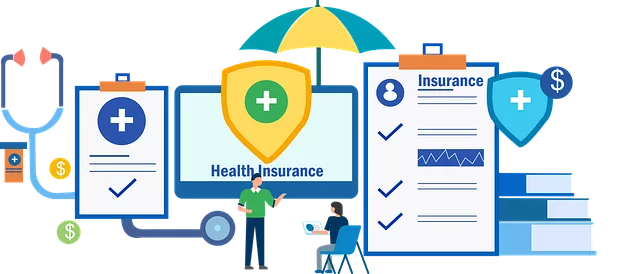Navigating Commercial Insurance: Essential Guide for Small Businesses
Commercial insurance is a crucial safety net for small businesses, offering protection against diver…….

Commercial insurance is a crucial safety net for small businesses, offering protection against diverse risks and financial losses. Tailored policies address specific business perils, with options like General Liability Insurance, Business Owners Policy (BOP), and professional liability coverage. Risk assessment involves auditing operations, assets, and potential threats from internal and external factors, ensuring regular updates as the business environment changes. When choosing an insurer, compare quotes, research specialists in your sector, and prioritize comprehensive protection aligned with your needs over cost. Understanding policy exclusions empowers business owners to select suitable coverages, mitigating financial risks effectively. Maximizing commercial insurance coverage through strategic risk management ensures peace of mind, proactive safeguardings, and sustained business growth.
“In today’s competitive business landscape, safeguarding your small enterprise against unforeseen risks is paramount. Commercial insurance isn’t just a luxury—it’s an essential tool for resilience and growth. This comprehensive guide delves into the intricacies of commercial insurance, empowering small business owners to navigate potential threats effectively. From understanding policy coverage to assessing unique business risks, we’ll explore practical steps to secure the future of your venture. Discover the types of policies available, learn how to choose the right provider, and gain insights on managing exclusions, all tailored to optimize your protection.”
Understanding Commercial Insurance: What It Covers and Why It Matters

Commercial insurance is a safety net for small businesses, designed to protect against potential risks and financial losses. It encompasses a wide range of coverage options tailored to mitigate specific perils that businesses face in their operations. From property damage and liability claims to income loss due to business interruption, commercial insurance policies offer financial safeguards.
Understanding the scope of what’s covered is crucial for any small business owner. It ensures peace of mind, knowing that unexpected events won’t cripple the business. By assessing their unique needs and choosing the right policy, businesses can avoid devastating financial repercussions. This proactive approach allows them to focus on growth and success rather than potential pitfalls.
Types of Commercial Insurance Policies for Small Businesses

Small businesses come in various forms and face unique risks, which is why having the right commercial insurance policies is essential for their protection. The good news is that numerous options are available to cater to different needs. One popular type is General Liability Insurance, which shields owners from claims of bodily injury or property damage on their premises. This policy is crucial for businesses dealing with customers and employees, ensuring financial safety against lawsuits and settlement costs.
Another vital coverage is Business Owners Policy (BOP), a comprehensive package combining several essential insurances under one roof. BOP typically includes property insurance to protect the business’s physical assets, general liability to cover accidents and injuries on site, and even loss of income protection during unforeseen events or disasters. Additionally, professional liability insurance is recommended for service-based businesses, safeguarding against claims of negligence or malpractice related to their services.
Assessing Risk: Identifying Potential Threats to Your Business

Assessing risk is a crucial step in understanding your business’s vulnerabilities and determining appropriate coverage for your commercial insurance policy. Potential threats to your small business can come from various sources, including natural disasters like fires or floods, cyberattacks, property damage, liability claims, and employee-related incidents. Identifying these risks involves conducting a thorough audit of your operations, assets, and potential exposure points.
A comprehensive risk assessment should consider both internal and external factors. Internally, review your business practices, procedures, and policies to identify any gaps or weaknesses that could lead to losses. Externally, analyze market trends, industry-specific risks, and regulatory changes that might impact your operations. Regularly updating this assessment is essential as your business grows and its environment evolves, ensuring you have the right commercial insurance coverage in place.
How to Choose the Right Commercial Insurance Provider

When selecting a commercial insurance provider, start by understanding your business’s unique needs and risks. Different industries face distinct challenges, so tailored coverage is essential. Research companies that specialise in your sector to ensure they have expertise in addressing industry-specific perils.
Next, compare quotes and policies from multiple insurers. Examine the scope of coverage offered, exclusions, deductibles, and potential limitations. Check reviews and ratings from reputable sources to gauge customer satisfaction. Remember, the cheapest option may not always be the best; comprehensive protection that aligns with your business’s requirements is paramount.
Common Exclusions and Limitations: What's Not Covered

Commercial insurance policies, while comprehensive, come with their exclusions and limitations. Understanding what’s not covered is crucial for small business owners in making informed decisions about their risk management strategy. Common exclusions include events like war, nuclear incidents, and environmental damage, which are typically excluded from standard commercial insurance policies. These can be added as endorsements at an extra cost but often require careful consideration due to the significant financial implications.
Other limitations may include business interruption caused by events within your control, such as faulty maintenance or poor security measures. Additionally, certain types of businesses, like those in high-risk industries like construction or transportation, might face stricter limitations and higher premiums. Being aware of these exclusions and limitations helps business owners choose the right coverage that aligns with their specific needs, ensuring they’re not left vulnerable to significant financial losses.
Maximizing Your Coverage: Tips for Effective Risk Management

Maximizing your commercial insurance coverage is a strategic move for effective risk management. It involves understanding and proactively addressing potential risks that could impact your small business. Start by assessing your operations, identifying vulnerabilities, and evaluating past claims or incidents. This process will help you determine necessary coverages like property protection, liability safeguards, and specific industry-related insurances. By tailoring your policy to these needs, you ensure comprehensive protection against financial losses.
Additionally, staying informed about industry trends and regulatory changes is vital. Regularly reviewing your coverage with an insurance professional ensures you have the latest protections in place. Remember, commercial insurance isn’t just about mitigating risks; it’s a proactive step towards safeguarding your business’s future, providing peace of mind, and enabling sustained growth.







